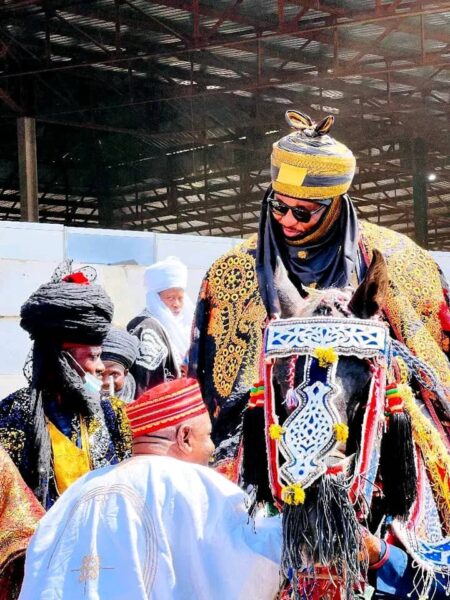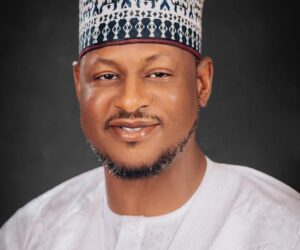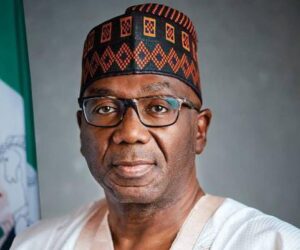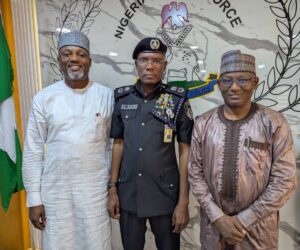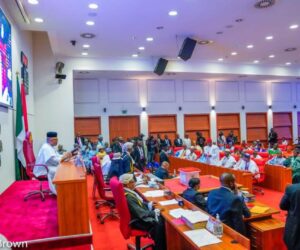Governor Abba Kabir Yusuf of Kano State has issued an Executive Order mandating the traditional councils to continue organising annual Durbar festivals.
The governor disclosed this while inaugurating the maiden edition of the Kano Festival of Arts and Culture (KanFest), popularly known in Hausa as Kalankuwa, on Saturday.
He called for the revival and preservation of the state’s centuries-old cultural heritage.
SPONSOR AD
At the official opening ceremony which held at the Kano Trade Fair Complex, Governor Yusuf said the festival marked “a milestone in the history of our beloved state,” describing Kano as a city “deeply rooted in history, arts, culture, and heritage” that has stood for centuries as a centre of learning, commerce, creativity and civilisation.
“The craftsmanship of our people, the richness of our traditions, and the resilience of our forefathers are what made Kano the pride of the Sudan region and a reference point on Africa’s cultural map,” the governor stated.
Yusuf recalled that even before his election, his administration had pledged in its blueprint to revive and reposition the state’s cultural and tourism sector as part of efforts to restore the dignity of the people, strengthen identity, and generate new economic opportunities.
He listed a series of ongoing projects aimed at preserving Kano’s historical and cultural heritage.
Among them are the rehabilitation of the Ministry of Culture and Tourism complex, the upgrading of the History and Culture Bureau into a world-class research and documentation centre, and the restoration of key historical monuments, including Gidan Dan Hausa, Gidan Rumfa, and the ancient Kofar Mata dye pits, one of the oldest surviving traditional dyeing centres in the world.
“We have also commenced the reconstruction of the collapsed Gidan Makama monument, a critical part of Kano’s architectural and colonial history, and modernisation of the Magwan leather hub to empower local artisans and boost competitiveness of our leather industry,” Yusuf said.
The governor also announced plans to restore the ancient city walls and gates of Kano, which he described as “a 700-year-old symbol of unity, strength and civilisation.”
“Our goal is to preserve it as an enduring heritage and a source of pride for future generations,” he added.
Governor Yusuf disclosed that the UNESCO recognition of the Kano Durbar Festival as one of the world’s intangible cultural heritages had prompted his administration to issue an Executive Order mandating the four emirates — Kano, Rano, Gaya, and Karaye to continue organising their annual Durbar festivals.
“This recognition places Kano on the global stage and reaffirms the importance of our traditional institutions in promoting peace, unity, and cultural identity. The state government and all 44 local governments will continue to support the emirates to sustain this proud tradition,” he declared.
Governor Yusuf said beyond preserving history, the revitalisation of culture and tourism remains part of his administration’s strategy to create jobs and drive economic diversification.
“Culture is not a relic of the past; it is a living asset for future generations. We will continue to promote arts, culture, and tradition as vital instruments of social cohesion, youth engagement, and economic growth,” he said.
Earlier in his opening remarks, Deputy Governor Aminu Abdussalam Gwarzo described the festival as “a journey through our collective identity,” and a platform to rediscover, preserve, and promote the indigenous values that have distinguished Kano and its people for centuries.
He noted that KanFest would feature exhibitions, performances, art displays, storytelling, and music, aimed at showcasing both tradition and innovation while creating opportunities for artists, artisans, and creative youth to connect with investors and cultural influencers.
“Our administration recognises that culture is not just entertainment — it is a driver of economic growth, social harmony, and tourism development,” Gwarzo added.
Also speaking at the event, the Rwandan Ambassador to Nigeria, Mr. Christophe Bazivamo, commended the Kano State Government for hosting the festival, describing it as “a historic initiative that reawakens Africa’s cultural pride and strengthens the continent’s shared identity.
“By returning to our roots and traditions, we are building a strong foundation for unity, dignity, and resilience,” he said, adding that Rwanda and Nigeria share deep cultural and economic ties.
The event was attended by top government officials, members of the diplomatic corps, traditional rulers, business leaders, and cultural enthusiasts from within and outside Nigeria.

